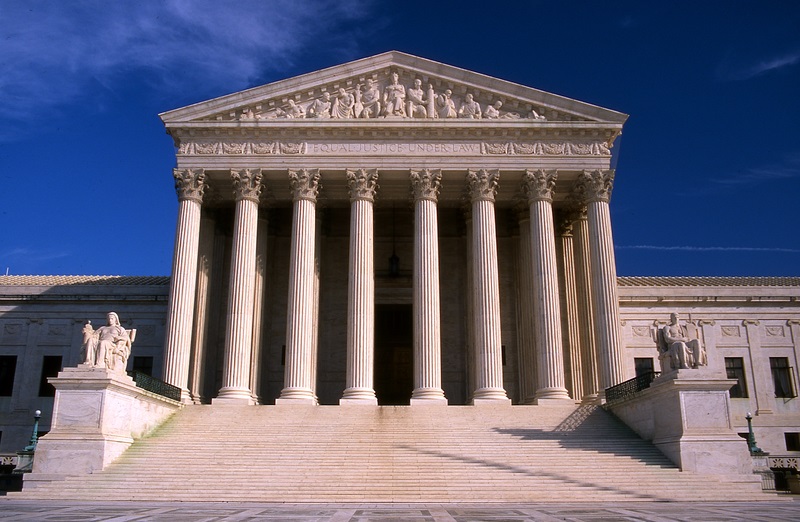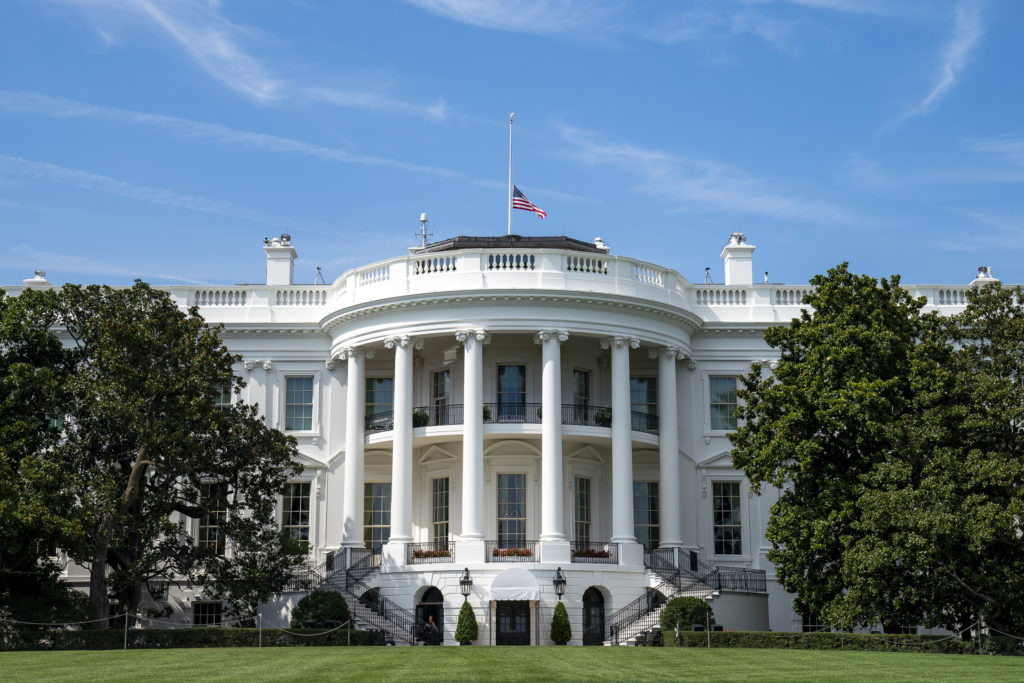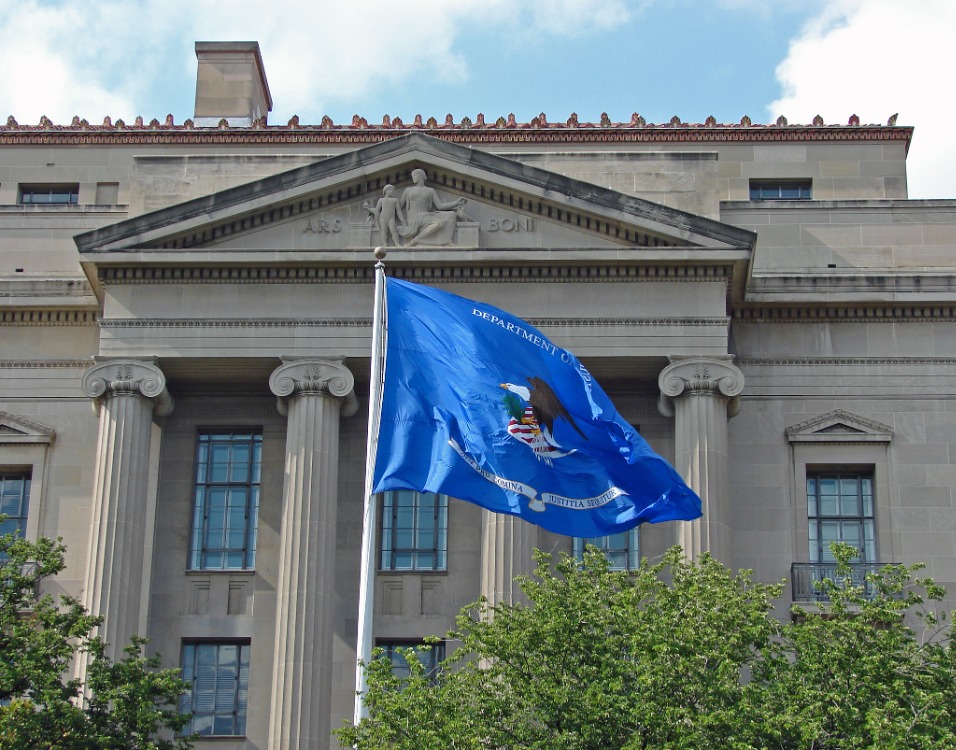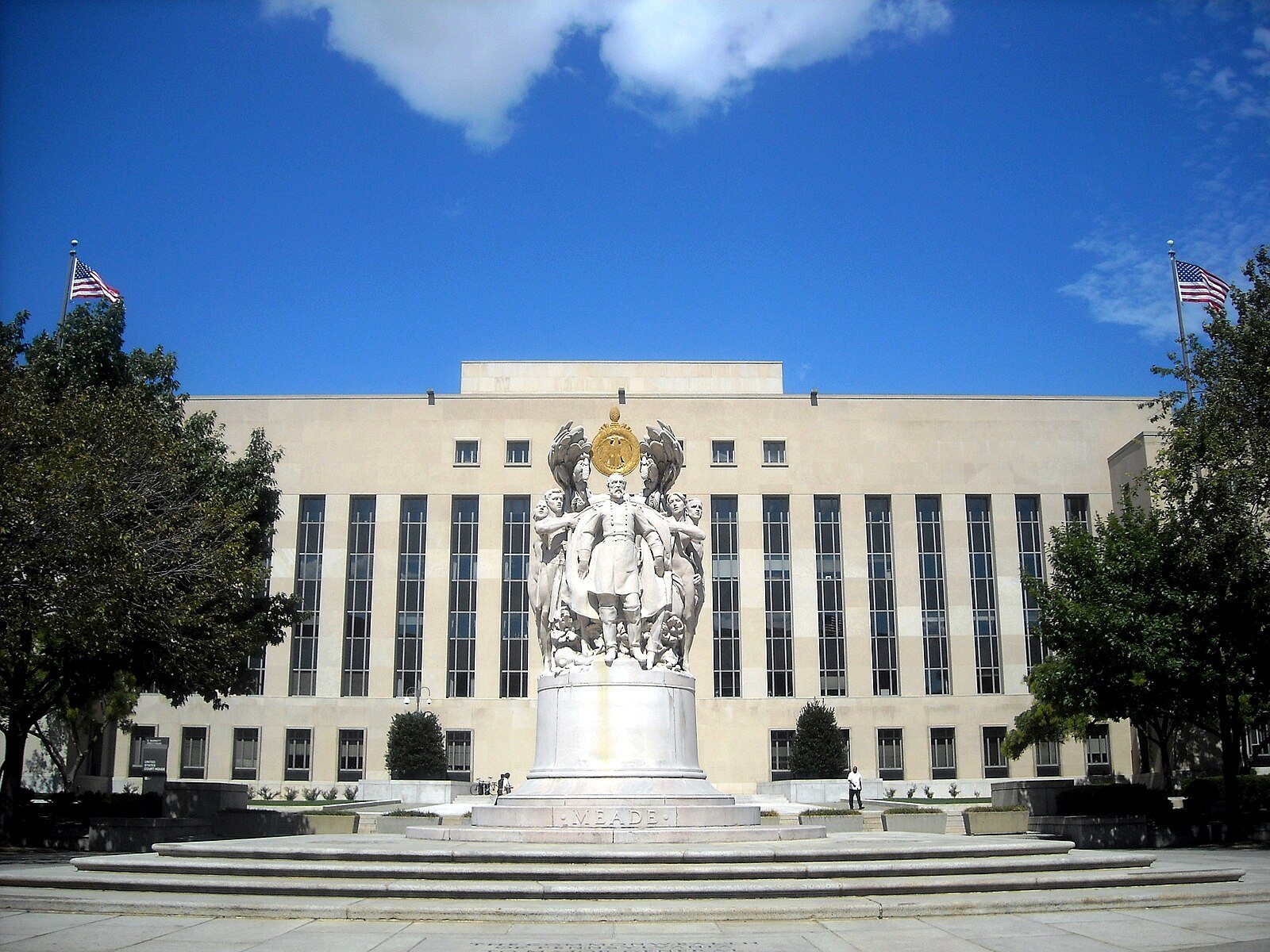If SCOTUS Won’t Enforce the 14th Amendment, We Should Worry How They’ll Handle the 22nd
If the Court won’t impose Section 3 restrictions in favor of “letting the voters decide,” will they let a presidential candidate vie for a third term?

Published by The Lawfare Institute
in Cooperation With

Fast forward to August of this year: The Democrats are convening in Chicago to make their presidential nomination official. Behind the scenes, a secret scramble is in the works. With polling continuing to show the incumbent trailing badly, and protesters in the streets opposing the president’s support for the war in the Middle East invoking images of 1968, the president and his advisers conclude it would be in the best interests of the country if he stood down. Trying to cast the convention more as the RNC in Chicago in 1860 than the DNC in Chicago in 1968, they decide to throw the nomination open to the delegates so a more competitive candidate can emerge.
After three days of raucous floor argument unlike any seen in nearly a century, the delegates converge on two conclusions: First, the threat Donald Trump poses to the Republic is existential, and all other considerations aside, they must pick the person most likely to beat him; and second, the most popular figure out there with the best track record of unifying the Democratic coalition to win a hard national election is Barack Obama.
Of course, the objection is raised that Obama is ineligible, having already served two terms. The 22nd Amendment to the Constitution is clear: “No person shall be elected to the office of the President more than twice.” But that objection is met with a powerful rejoinder: Donald Trump is ineligible as well, barred by Section 3 of the 14th Amendment for having engaged in insurrection and having given aid and comfort to insurrectionists. Earlier this year, bowing to fears that Trump and his supporters might unleash chaos or violence if he was struck from the ballot, and accepting—at least implicitly—the argument that voters, not courts, should decide who to elect, the Supreme Court declined to enforce the terms of the 14th Amendment against Trump.
Tired of one standard applying to Donald Trump and another to everyone else, Democrats rally behind Obama and, on the fourth day, nominate him by acclamation. States led by Republican officials refuse to place him on the ballot, citing his ineligibility. But states led by Democratic officials, following the Supreme Court’s declination to bar Trump, place Obama on the ballot, putting him on the ballot in enough states to potentially win 270 Electoral College votes.
Trump supporters in Michigan sue, and the case quickly reaches the Supreme Court. What should the Court do? In this imagined future, what is the Court likely to do?
Until recently, the answer to the first question was uncontroversial: It should strike Obama from the ballot. But in this scenario, the answer to the second question is much harder: The Court would have to know that keeping the likely Republican nominee on the ballot but knocking the preferred Democrat off would render it partisan beyond repair.
This scenario is of course solely for purposes of illustration. Joe Biden is not going anywhere. But one aspect of it is not entirely made up. While Barack Obama has never suggested running for a third term, Donald Trump has. Repeatedly.
“We are going to win four more years,” he said in August 2020, “and then after that, we’ll go for another four years because they spied on my campaign. We should get a redo of four years.” He went on a month later: “After [getting reelected], we’ll negotiate, right? Because we’re probably — based on the way we were treated — we are probably entitled to another four after that.”
Notwithstanding the implausibility of this argument as a legal matter, it is not hard to see how, if returned to power, Republicans might rally behind it in 2028 just as Democrats might rally behind Obama in the tale just told, especially if the Supreme Court decides this year that it is not its job to enforce the Constitution to bar popular candidates from the ballot.
Which is just one of many reasons why the Court must do the hard thing this week and apply the terms of the 14th Amendment, regardless of where that leads, notwithstanding numerous good- and bad-faith objections about why it would be imprudent for them to do so.
Now wait, some critics might say. The 22nd Amendment is different from the provision of the 14th Amendment at issue. The terms of Section 3, they might argue, are less straightforward than the two-term limit in the 22nd Amendment (or than the other requirements for the presidency, such as the requirements that presidents be at least 35 years old and natural-born citizens).
But to the extent any additional ambiguities exist as to what Section 3 means or how it applies (and I have my doubts as to whether they do—good lawyers can manufacture compelling arguments on both sides of even clear-seeming provisions), that doesn’t make it less susceptible to judicial resolution; it makes it more so! Interpreting contested constitutional provisions and determining when and how they apply is the very definition of what courts are for.
Just last week, the Oregon Supreme Court held that 10 Republican state senators could not seek reelection because they disqualified themselves when, last year, they engaged in a weeks-long walkout in order to deprive the legislature of the quorum necessary to proceed with work. That’s a tactic both parties in Oregon have historically engaged in and so, in 2022, Oregon voters adopted a constitutional amendment designed to punish such behavior. Under the amendment, legislators who have more than 10 unexcused absences are prohibited from seeking reelection.
The voters of Oregon, having lived through a problem with the functioning of their government far less severe than the Civil War, used a democratic process to add a requirement to their Constitution further limiting who they would permit to serve in public office. The provision had some ambiguities in it, but that didn’t stop the highest court in the state from interpreting those and enforcing what it concluded was the purpose for which the provision was enacted.
A Google search of news stories about the Oregon Supreme Court enforcing this decision turned up no hits for the word “anti-democratic.” I suspect that is because the recency of Oregon voters’ expressing their will to add this restriction creates the impression that the court is enforcing the democratic will of voters rather than restricting it.
The 14th Amendment case before the U.S. Supreme Court is no different—it’s just that the democratic will that would be enforced by striking Trump from the ballot is a will expressed by Americans 150 years ago, in response to the national crisis of the 1860s. And so it feels to many Americans like, in this case, the Court’s restricting who voters can vote for is less democratic.
But restricting our choices in order to preserve our freedoms is a paradox humans have honored literally for millennia—at least since Homer wrote of Odysseus tying himself to the mast.
The drafters of our Constitution understood this paradox. They knew that giving we the people sovereignty posed risks that we’d make choices that might squander it. To avoid the risk that voters might be tempted by the appeals of dynasty, they required presidents to be at least 35 years old. To avoid the risk that voters might be tempted by the appeals of a British nobleman and brought back under the thumb of the king, they required presidents to be natural-born citizens. To avoid the risk that voters might be tempted by the appeals of a popular long-serving incumbent, they required presidents to serve no more than two terms. And to avoid the risk that voters might be tempted by a demagogue uncommitted to the oath of office, they required presidents to not have violated a previous oath by engaging in insurrection.
The Court’s job is to play the role of Odysseus’s fellow sailors. Odysseus had his shipmates put wax in their ears so they wouldn’t be tempted by the siren’s song, just as our Framers gave the justices life tenure so as not to be swayed by the temporary passions of political majorities. So that he could hear the beautiful singing himself, Odysseus had his shipmates leave his ears open but tie him to the mast. Upon hearing the song, Circe warned, Odysseus would demand he be untied. It was at that moment, the goddess said, that his shipmates would need to yank the lash tighter.
A faction in this country is crying out in response to Trump’s appeals for the Court to loosen the ties when history teaches this is the moment for the justices to tighten them.
Because if the Court isn’t willing to impose the restrictions of the 14th Amendment in the face of today’s siren song of “letting the voters decide,” what does that say about the likelihood that they’ll do so when the 22nd Amendment is at stake? If the justices release us from the constraints we placed on ourselves in the 14th Amendment, limiting our own choices in order to preserve democracy, then our ship of state may, to quote Homer, “smash[] upon rocks as sharp as spears,” and our democracy may “join the many victims of the Sirens in a meadow filled with skeletons.”




